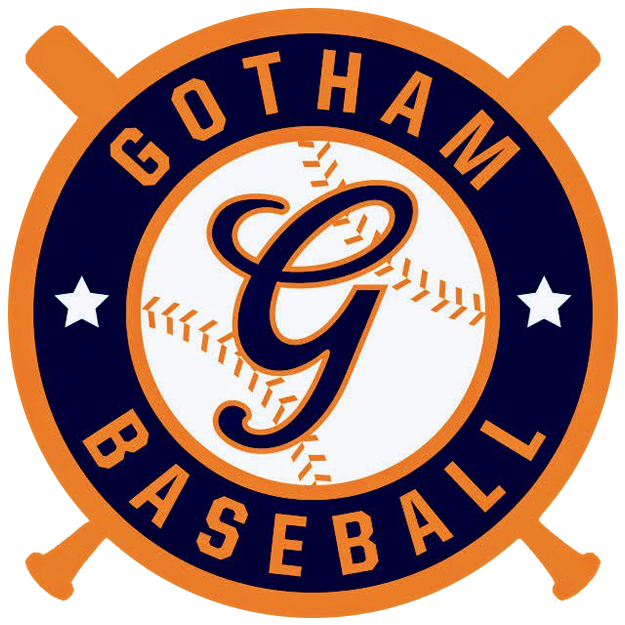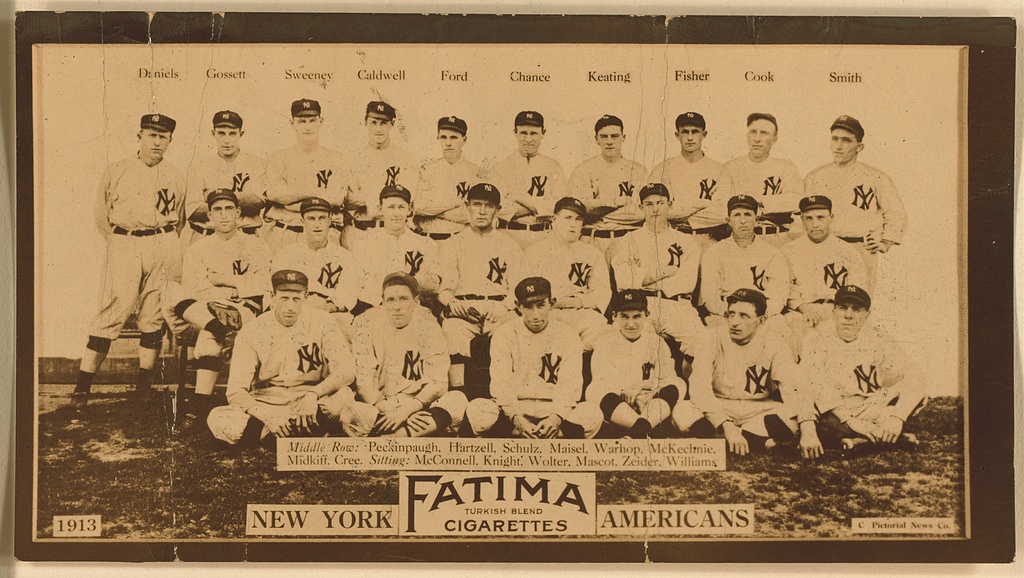The excellent new book A Franchise on the Rise: The First Twenty Years of the New York Yankees (2018, Sports Publishing, 308 pps, $27.99) tells the story of the pre-Ruth Yankees (then, mostly “Highlanders”). See my reviews here and here.
Author Dom Amore took some time to answer a few questions for Gotham Baseball here:
Gotham Baseball: Which stories did you first learn about that made you interested in the pre-Ruth Highlanders/Yankees?
Dom Amore: Jack Chesbro and his 41 wins, and the 1904 pennant race. It’s been told many times, but it’s hard to imagine a pitcher giving more to his team, only to come up short and get the blame! So much of the romance of baseball is living and dying with a starting pitcher, and Jack Chesbro tugged at he heart strings. … In general, I’m just interested in the nature of the game from the pre Ruth era, how it was played, the characters of the players, and I have been since reading The Glory of Their Times as a teenager.”
GB: What were the biggest factors keeping those teams from being successful over almost 20 years?
DA: Ownership. The Farrell-Devery ownership served its purpose, got the land, got the initial park built and launched the franchise. But they were inept, made very bad, knee-jerk decisions and proved to be poor businessmen when it came to building a permanent park. They kept setting the franchise back.
GB: I often reply with #freehalchase and #freecarlmays anytime I see a post that mentions those two stars. Do you think either has been misunderstood and should be better known to Yankees fans?
DA: Chase can be hard to defend. Even if he was innocent of fixing games, which is doubtful, he was not a good teammate or employee. He was often off somewhere playing semipro ball for extra money when he should have been resting, or playing for the Yankees. But he is a tragic figure and late in his life he did show great remorse for having wasted his talent.
Mays did not mean to kill Ray Chapman. But he was a volatile character and a fierce competitor. One of the first female sportswriters, Jane Dixon, did a remarkable interview with Mays and his wife in 1919 that really illuminated his complex personality, and he wrote a first person piece for Baseball Magazine that did the same. He was a private guy, but very complex and tormented by bit of a persecution complex. But a great pitcher.
GB: Each time those early teams got any momentum going, like their three second-place finishes, they bottomed out right after. Was it more bad luck or bad management that caused that?

DA: See above. Bad management and often the presence of volatile characters that did not have the steady, consistency in personality that it took to be great and be a winning team.
GB: Does that management remind you of anything going on in Queens these days?
DA: Yes, in the obsession with the other team in town, the Giants, and need to try to quick-fix the franchise with players who were past their prime. [Frank] Farrell and [Bill] Devery were willing to spend money up to a point, but also tried to monetize the ballpark in ways that cost their team a home field advantage. They wanted to win, but were just inept. Remember, the Mets, for all their faults, were in the World Series only three years ago.
GB: Sometimes history is as much about what didn’t happen as what did. Which alternative history (McGraw gets to manage Yankees, Mays doesn’t bean Chapman, Farrell’s 225th St. location materializes, Chesbro wins #42, etc.) could have had the biggest effect on the franchise moving forward, and how might have that made it different?
DA: Unquestionably, if they had been successful in luring Honus Wagner from the Pirates in 1903, they would have had the best player in baseball to anchor the franchise for its first 10 years. They would likely have won at least one pennant, maybe several, and it would have masked the other shortcomings of Farrell-Devery. They may have owned the team longer, and the urgency to “put the team on the map” that set the stage for the Ruppert ownership and Babe Ruth acquisition might not have been so great. A real fan base for AL baseball in New York would have grown around Wagner. But he was loyal, perhaps to a fault, and stayed in Pittsburgh when six or seven of his teammates, including Chesbro, jumped to New York.
GB: Finally, where do you stand on the “mini” controversy as to whether the Yankees franchise actually originated in Baltimore and was “moved,” or was a “new” franchise in 1903 taken over when the Orioles were abandoned?
DA: I agree with Marty Appel on this, that the New York franchise was a completely new franchise that replaced the folded Orioles. Except for a couple of players, the entire team was put together by [Ban] Johnson and [Clark] Griffith from scratch. So I see no reason to consider the 1901-02 Baltimore franchise an extension of the Yankees history. The Orioles for all intents and purposes ceased to exist after the 1902 season and if efforts to establish the team in New York failed, the AL would have been in big trouble figuring out what to do for an eighth franchise.

